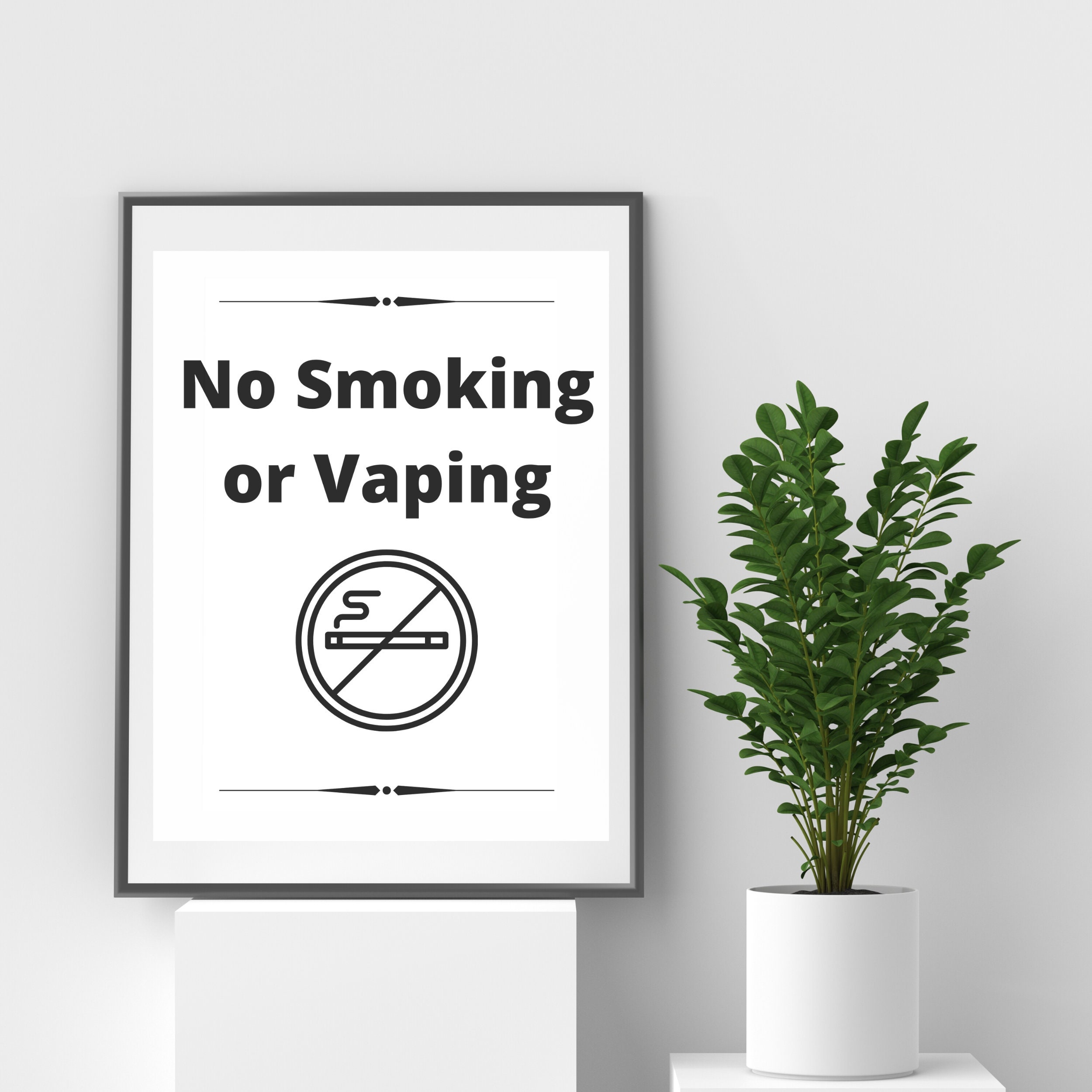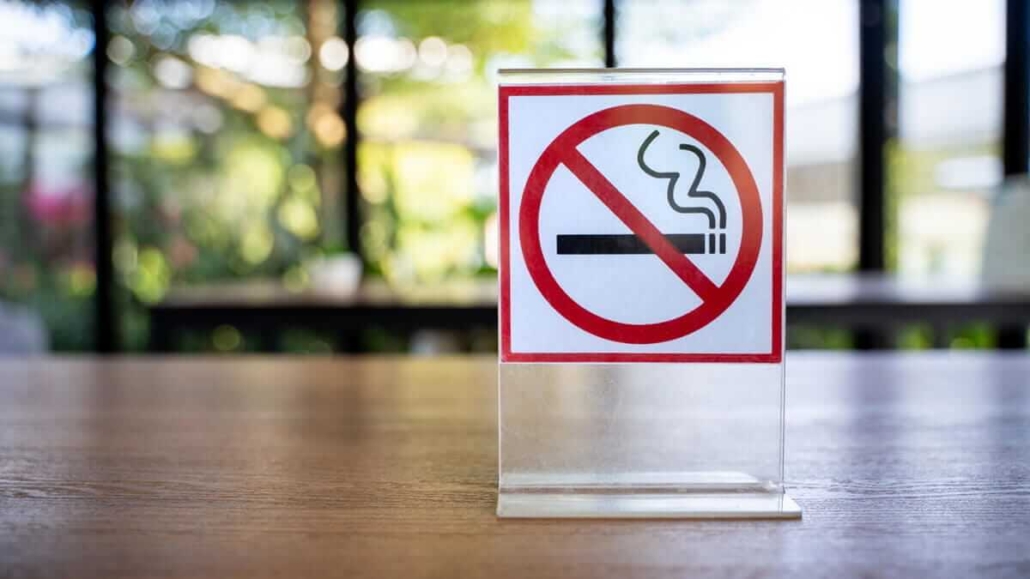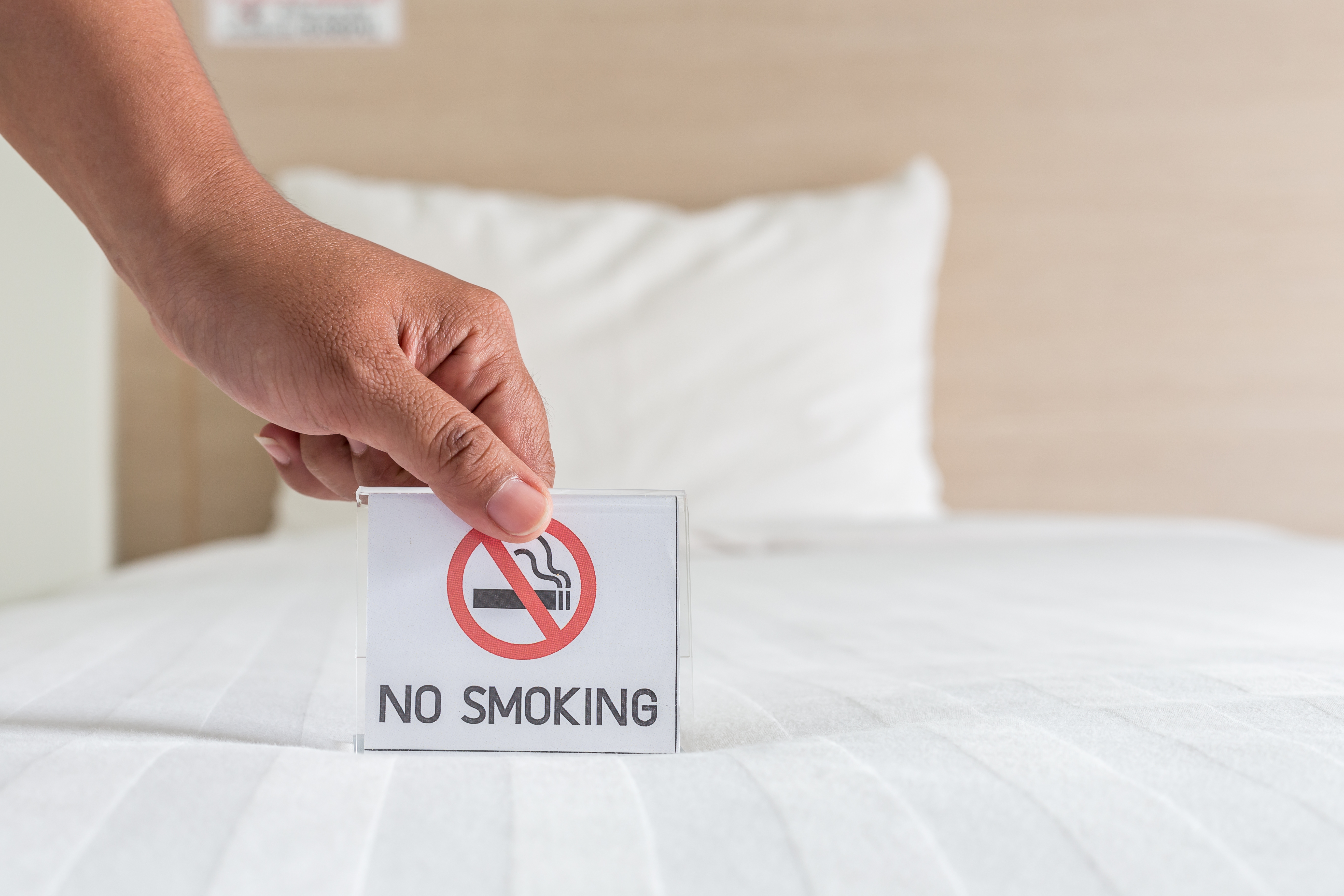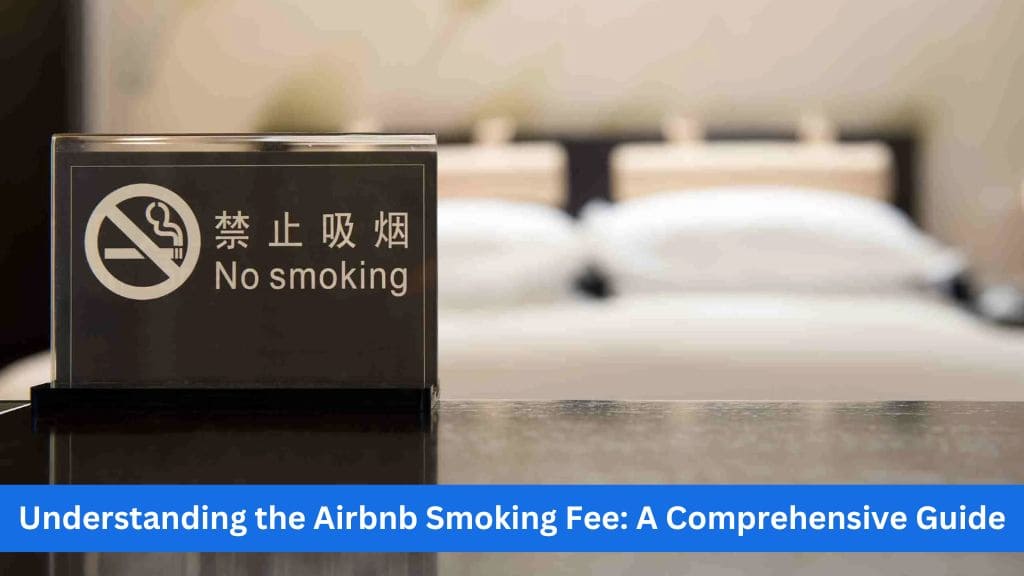In the world of short-term rentals, maintaining the quality and cleanliness of properties is paramount to ensuring positive guest experiences and preserving host reputations. One challenge hosts often face is guests smoking in their rental properties, which can lead to not only unpleasant odors but also additional cleaning costs and potential damage. To address this issue, many hosts opt to implement an Airbnb smoking fee. In this guide, we’ll delve into the intricacies of the Airbnb smoking fee, exploring how hosts can effectively prevent smoking in their properties, detect violations, and mitigate associated costs.
Introduction to the Airbnb Smoking Fee
The Impact of Smoking on Short-Term Rentals
Odor
- Persistent Odors: Cigarette smoke has a notoriously strong and lingering odor that can permeate fabrics, upholstery, and even walls.
- Difficult to Remove: Despite thorough cleaning efforts, the smell of smoke may persist, potentially affecting subsequent guests’ experiences and leading to negative reviews.
- Perception of Cleanliness: Lingering smoke odors can give the impression that the property is not properly cleaned or maintained, impacting its overall appeal to potential guests.
Cleaning Costs
- Additional Cleaning Efforts: Removing smoke residue and odor requires specialized cleaning techniques and products, often necessitating more time and resources than standard cleaning procedures.
- Professional Services: In severe cases, hosts may need to enlist the services of professional cleaners or restoration specialists to effectively eliminate smoke odors and stains.
- Potential Damage: Smoking indoors can result in visible damage to surfaces such as walls, ceilings, and furniture, further increasing the cost and effort required for restoration.
Property Damage
- Staining and Discoloration: Cigarette smoke contains tar and other chemicals that can leave stains and discoloration on walls, ceilings, and furnishings.
- Permanent Damage: In addition to visible stains, smoking indoors can cause long-term damage to surfaces and materials, reducing the overall lifespan and appeal of the property.
- Costly Repairs: Repairing or replacing damaged items and surfaces can be costly for hosts, impacting their profitability and requiring downtime for maintenance.
Guest Dissatisfaction
- Negative Guest Experiences: Non-smoking guests may be sensitive to the presence of smoke odors and evidence of smoking in the property, leading to dissatisfaction with their stay.
- Expectation Misalignment: Guests who book a non-smoking property expect a smoke-free environment and may feel deceived or disappointed if they encounter evidence of smoking during their stay.
- Impact on Reviews and Ratings: Negative experiences related to smoking can result in poor reviews and ratings, affecting the property’s reputation and future booking potential.
Purpose of the Airbnb Smoking Fee

Deterrence and Policy Reinforcement
- Creating Accountability: By imposing a smoking fee, hosts establish clear consequences for violating the no-smoking policy, deterring guests from engaging in smoking behavior.
- Reinforcing House Rules: The fee reinforces the host’s no-smoking policy, ensuring that guests understand and adhere to the rules established for the property.
Cost Recovery
- Covering Additional Expenses: Smoking in rental properties can result in additional cleaning costs, repairs, and restoration efforts to eliminate smoke odors and damage.
- Fair Allocation of Costs: The smoking fee allows hosts to recover these expenses from guests responsible for the smoking violation, ensuring that the financial burden is not unfairly borne by the host.
Policy Enforcement and Compliance
- Maintaining Property Standards: Enforcing the smoking fee demonstrates the host’s commitment to maintaining the cleanliness, safety, and integrity of the rental property.
- Encouraging Compliance: The threat of a smoking fee encourages guests to comply with the no-smoking policy, promoting a positive experience for all guests and preserving the property’s condition for future bookings.
Risk Mitigation
- Protecting Property Assets: Implementing a smoking fee helps hosts mitigate the risk of property damage and depreciation caused by smoking incidents.
- Minimizing Disruption: By deterring smoking behavior and swiftly addressing violations, hosts minimize disruptions to subsequent guests and avoid the need for extensive cleaning and repairs.
Legal and Regulatory Compliance
- Meeting Legal Requirements: In some jurisdictions, hosts may be required by law to enforce no-smoking policies in rental properties.
- Liability Protection: Enforcing a smoking fee demonstrates the host’s proactive efforts to comply with legal obligations and mitigate liability risks associated with smoking-related incidents.
Implementing the Airbnb Smoking Fee

Clear Communication of Policies
- Listing Descriptions: Hosts should clearly state in their property listings and descriptions that smoking is strictly prohibited indoors.
- House Rules: Establish explicit no-smoking policies within the house rules section of the listing to inform guests of the expectations.
- Pre-Booking Communication: Use messaging platforms to remind guests of the no-smoking policy before they confirm their reservation, emphasizing its importance.
Utilizing Technology for Detection
- Smoke Detectors: Install smoke detectors in strategic locations within the property to promptly detect any smoking incidents.
- Smart Sensors: Utilize advanced smart sensors capable of detecting changes in air quality and notifying hosts of potential smoking violations.
- Noise Monitoring Systems: Some systems can detect sounds associated with smoking activities, providing additional evidence for enforcement.
Enforcement and Fee Collection
- Gathering Evidence: In the event of a smoking violation, gather sufficient evidence such as photographs of smoke-related damage and communication records with the guest.
- Initiating Resolution: Utilize Airbnb’s Resolution Center to submit a request for the smoking fee, providing all relevant documentation and evidence to support the claim.
- Damage Protection: Take advantage of Airbnb’s host damage protection to cover unexpected cleaning costs and damages caused by guests.
Preventative Measures and Best Practices
- Proactive Communication: Continuously communicate the no-smoking policy to guests through pre-booking messages, welcome messages, and post-stay feedback.
- Education and Awareness: Educate guests about the reasons behind the no-smoking policy, emphasizing the health hazards and property damage associated with smoking indoors.
- Incentives for Compliance: Offer discounts or rewards to guests who comply with the no-smoking policy throughout their stay, reinforcing positive behavior.
Legal and Regulatory Compliance
- Local Regulations: Ensure compliance with any local regulations or ordinances regarding smoking in rental properties.
- Lease Agreements: If applicable, include clauses in lease agreements or rental contracts explicitly prohibiting smoking and outlining consequences for violations.
Continuous Monitoring and Adaptation
- Feedback and Reviews: Pay attention to guest feedback and reviews regarding smoking-related issues, and use them to refine and improve enforcement strategies.
- Technology Upgrades: Stay informed about advancements in smoke detection technology and consider upgrading systems to enhance detection capabilities.
Collecting the Airbnb Smoking Fee
Documentation and Evidence Gathering

- Photographic Evidence: Take photographs of any smoking-related damage or evidence, such as cigarette butts, ashtrays, or smoke residue on surfaces.
- Communication Records: Keep records of any communications with the guest regarding the smoking violation, including messages reminding them of the no-smoking policy.
- Cleaning Invoices: Document the expenses incurred for cleaning and restoration due to smoking, including itemized invoices detailing the costs.
Initiating the Resolution Process
- Resolution Center: Navigate to Airbnb’s Resolution Center and initiate a request for the smoking fee reimbursement.
- Provide Supporting Documentation: Upload all relevant documentation and evidence, including photographs, communication records, and cleaning invoices, to support your claim.
- Explanation of Costs: Clearly outline the costs incurred as a result of the smoking violation, including cleaning fees, restoration costs, and any additional expenses.
Utilizing Airbnb’s Host Damage Protection
- Coverage for Smoking-Related Damage: Airbnb’s host damage protection includes cover for unexpected cleaning costs and damages caused by guests, including those resulting from smoking violations.
- Submission of Claim: Submit your claim for reimbursement through Airbnb’s platform, ensuring that all required documentation and evidence are included to support your case.
- Adherence to Timelines: Ensure that you adhere to Airbnb’s timelines for submitting claims and providing additional information, as failure to do so may result in delays or denial of the claim.
Follow-Up and Resolution
- Communication with Airbnb: Maintain open communication with Airbnb’s support team throughout the resolution process, providing any additional information or clarification as requested.
- Resolution and Reimbursement: Once the claim is processed and approved, Airbnb will facilitate the reimbursement of the smoking fee to cover the incurred expenses.
- Closure of Resolution Case: Ensure that the resolution case is closed once the reimbursement has been received, and follow up with any necessary steps to address the smoking violation and prevent future incidents.
Legal and Regulatory Considerations
- Compliance with Local Laws: Ensure that the collection of the smoking fee and resolution process comply with any applicable local laws or regulations governing rental properties and smoking policies.
- Transparency and Fairness: Maintain transparency and fairness in the fee collection and resolution process, providing guests with clear explanations and opportunities to address any disputes or concerns.
Preventative Measures and Best Practices

Effective Communication Strategies
- Pre-Booking Communication: Clearly communicate the no-smoking policy to guests before they confirm their reservation, emphasizing its importance and consequences for non-compliance.
- Welcome Messages: Send personalized welcome messages to guests upon their arrival, reiterating the no-smoking policy and providing reminders to respect the rules during their stay.
- Post-Stay Feedback: Provide feedback to guests after their stay, thanking them for adhering to the no-smoking policy and reinforcing the importance of maintaining a smoke-free environment for future guests.
Education and Awareness Campaigns
- Health and Safety Awareness: Educate guests about the health hazards associated with smoking indoors, including risks of fire, secondhand smoke exposure, and potential respiratory issues.
- Property Preservation: Explain how smoking can damage property interiors, furnishings, and fixtures, impacting the overall cleanliness, aesthetics, and value of the rental property.
Incentives for Compliance
- Discounts or Rewards: Offer discounts or rewards to guests who comply with the no-smoking policy throughout their stay, incentivizing positive behavior and adherence to the rules.
- Positive Reinforcement: Recognize and reward guests who maintain the cleanliness and integrity of the property by refraining from smoking, reinforcing the desired behavior.
Physical and Visual Deterrents
- Clear Signage: Place visible signs within the property reminding guests of the no-smoking policy, reinforcing expectations and deterring smoking behavior.
- Designated Smoking Areas: Create designated outdoor smoking areas away from the property’s ventilation points, providing guests with a designated space to smoke without affecting indoor air quality or cleanliness.
Continuous Monitoring and Surveillance
- Smart Sensors: Utilize advanced smart sensors capable of detecting changes in air quality and notifying hosts of potential smoking incidents, allowing for prompt intervention and enforcement.
- Noise Monitoring Systems: Some systems can detect sounds associated with smoking activities, providing additional evidence for enforcement and deterrence.
Regular Policy Review and Updates
- Feedback Analysis: Analyze guest feedback and reviews related to smoking incidents, identifying areas for improvement and refining enforcement strategies.
- Technology Upgrades: Stay informed about advancements in smoke detection technology and consider upgrading systems to enhance detection capabilities and effectiveness.
Conclusion
The Airbnb smoking fee serves as a crucial tool for hosts to maintain the cleanliness, safety, and integrity of their rental properties. By implementing clear policies, leveraging technology for detection, and following proper procedures for fee collection, hosts can effectively deter smoking incidents and mitigate associated costs. Through proactive communication, education, and incentives, hosts can foster a culture of respect for property rules, ensuring a positive experience for both guests and hosts alike.


